From Fermented Foods to Fitness: How to Improve Your Gut Microbiome
Learn how to improve your gut microbiome for better health. From diet to lifestyle changes, this guide offers science-backed tips for good gut health.
Good hearing is important to our general well-being; it plays a key role in helping us navigate the day and engage with the world around us. But as we get older, our hearing ability begins to decline, with high-pitched frequencies being the first to diminish in our hearing range - a condition called presbycusis.
Such reduced hearing capacity can also result from natural wear and tear, continued exposure to loud sounds, medications (ototoxicity), genetics, or disease, making it increasingly difficult for the brain to process and understand sounds.
Sound frequency hearing tests are an effective way to determine your true hearing age by measuring your ability to hear high-frequency sounds. Keep reading to learn about tests for hearing age, including how they work, what they reveal, and more.
The human ear physically catches sounds through the number of vibrations emitted per second by the sound, known as frequencies. Sounds are measured in hertz (Hz), and the lower or higher the frequency, the lower or higher the pitch of the sound. The general hearing frequency range of a healthy young person is between 20 Hz and 22,000 Hz, but this number gradually declines as a person gets older.
Moreover, the loudness of sounds is measured in decibels (dB), with a normal range of amplitude being 0 to 180 dB. A normal conversation is measured at approximately 60 dB, and any sound above 85 dB is considered damaging to the ear.
A hearing age test measures a person’s ability to hear sounds across a spectrum of frequencies and soundwaves, ranging from high to low. Such tests estimate your true hearing age based on the highest sound frequency the ear can detect. A person’s hearing age can be higher or lower than their chronological age, depending on the highest frequency sound they can hear.
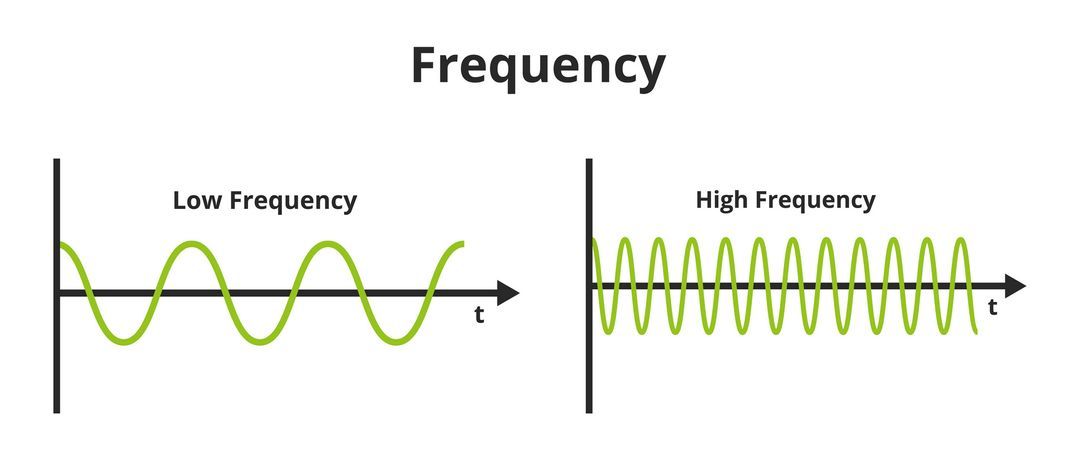
This is what a standard hearing age test looks like.
An age test for hearing identifies a person’s hearing threshold to determine the extent of high-frequency hearing loss. People with this issue have trouble hearing sounds within the 2,000 Hz to 8,000 Hz range.
Frequency hearing tests work by playing an increasingly high-frequency tone through your device, whether a laptop, tablet, computer, or smartphone. As the frequency increases, the corresponding age will decrease to provide an indication of your hearing age.
Eventually, the test will reach a frequency that is inaudible to your ear. The point at which you stop hearing any sound is your true hearing age.
Before taking the test, it is important to sit in a quiet environment free from noise and distractions; you may prefer to use headphones or AirPods to listen through. Set your device’s volume to 50%, and then press play. Keep the test playing for as long as you can hear the tone. When you can no longer hear any sound, pause the test. The age that appears on the screen is your ear age.
A recent study found that nearly two-thirds of people who are 71 and older have some type of hearing loss. Interestingly, men who are in their 50s, suffer from hearing loss at a greater rate than women, but as the both sexes age, that gap closes.
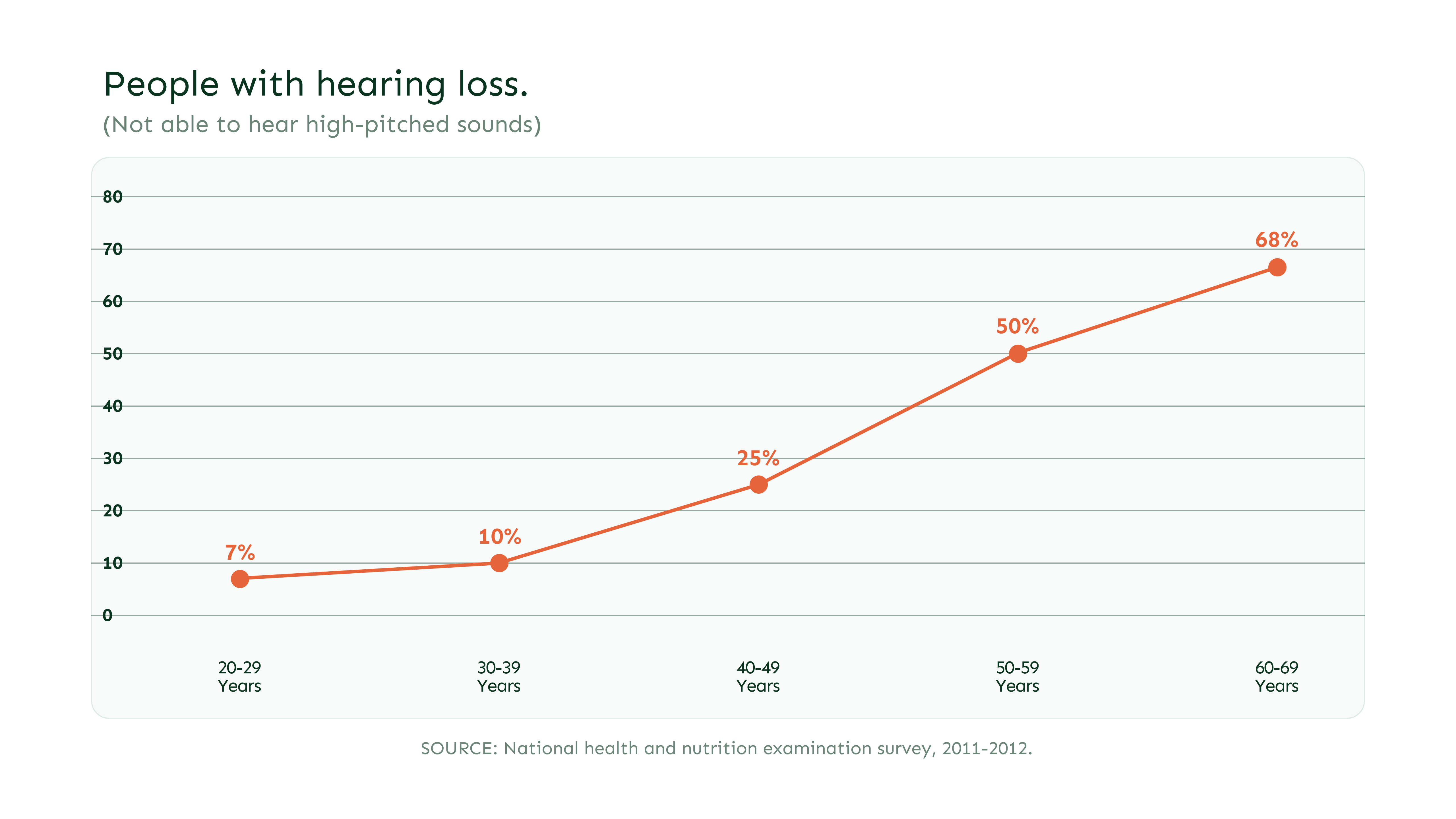
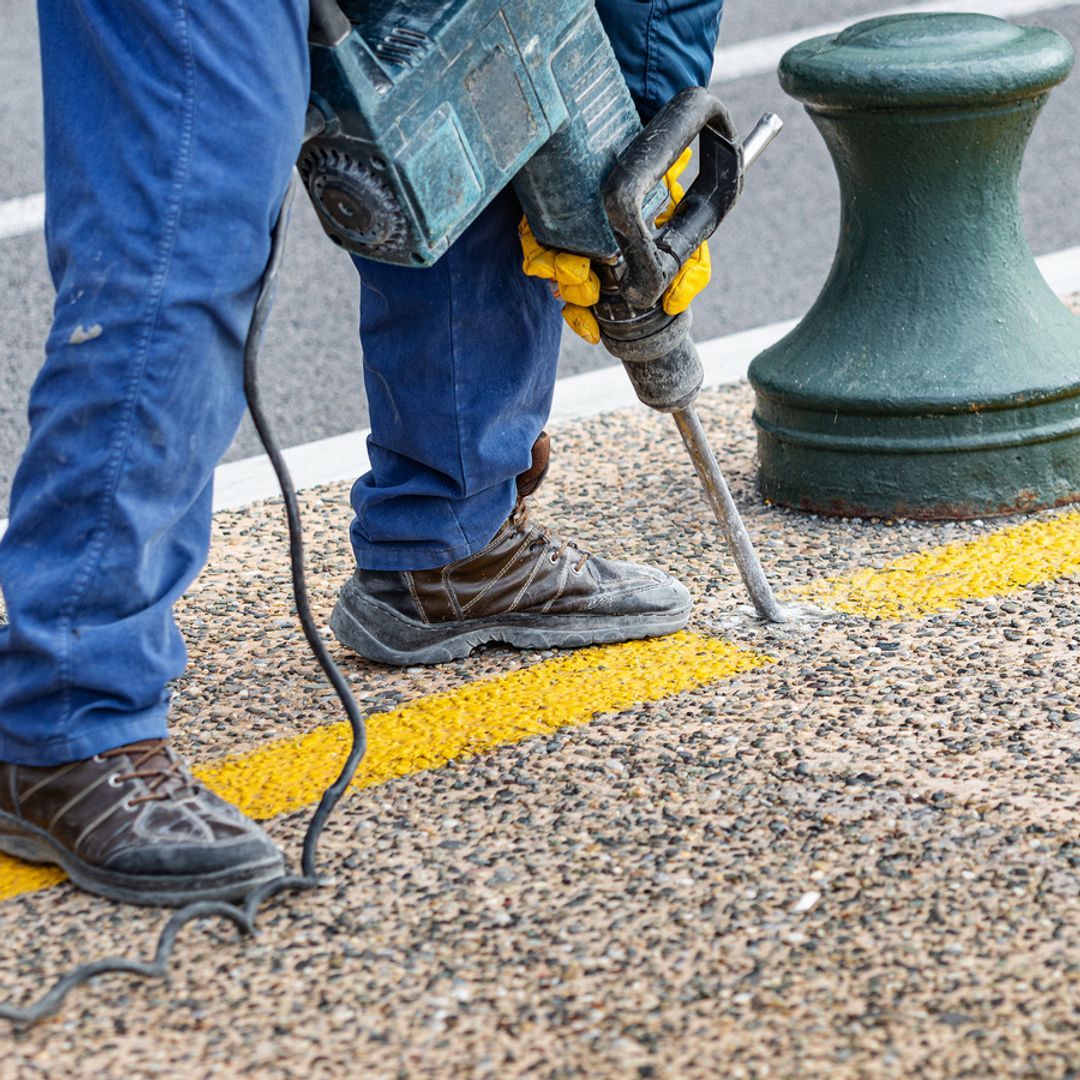 Ear health is crucial to living a good quality of life, but age and lifestyle factors can deteriorate hearing health, especially if you are regularly exposed to loud or high-pitched noise.
Ear health is crucial to living a good quality of life, but age and lifestyle factors can deteriorate hearing health, especially if you are regularly exposed to loud or high-pitched noise.
A decline in hearing has a knock-on effect on our work and social lives, negatively affecting our mental and emotional health. Hearing issues that aren’t addressed may eventually lead to cognitive deterioration, leading to problems with concentration and fatigue.
For this reason, having your hearing routinely tested can help detect the degree of hearing loss and address issues with your hearing before they become problematic.
Even if you’re not experiencing any hearing loss, taking an age-frequency hearing test can help provide meaningful insight into your hearing health and empower you to preserve your hearing capacity for as long as possible.
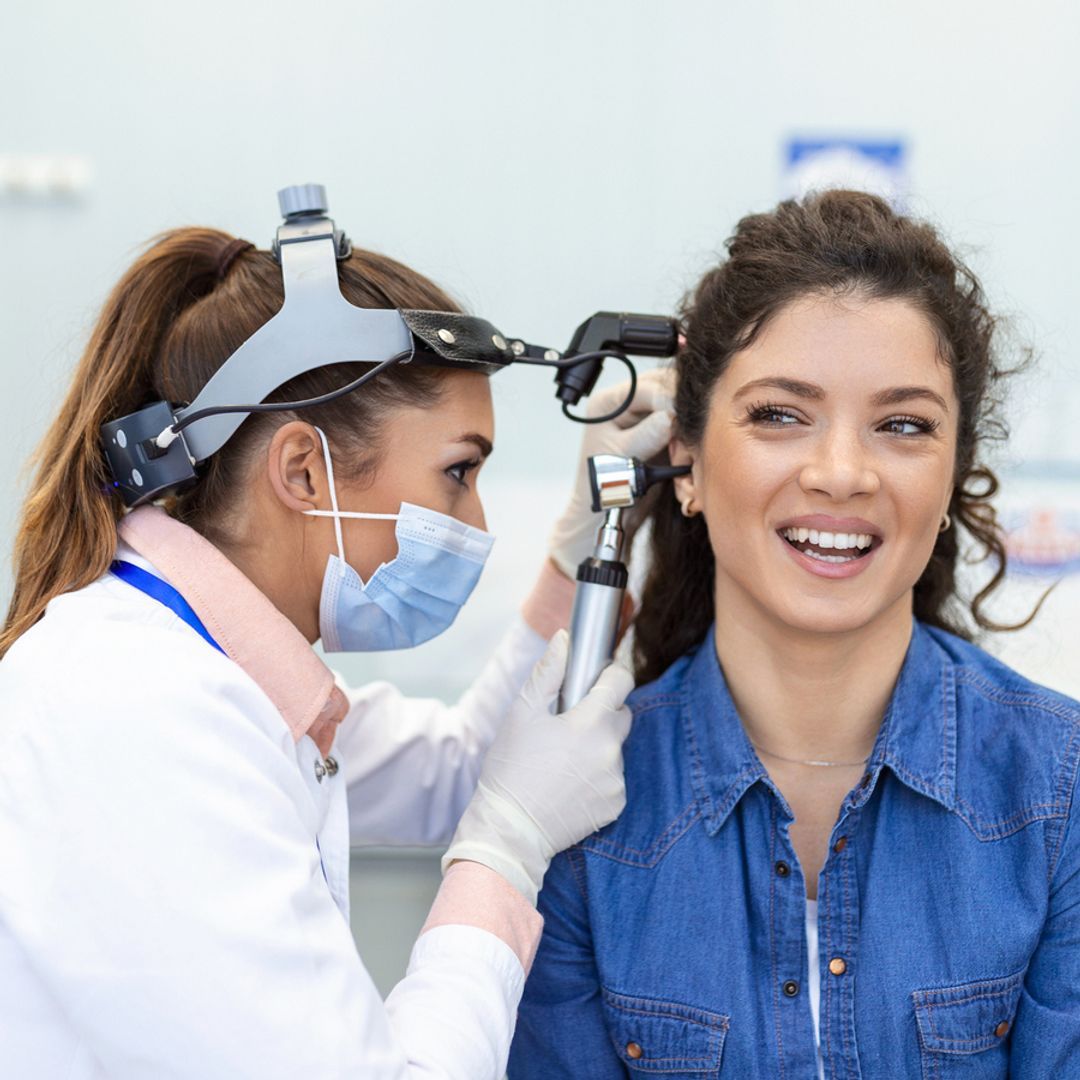 Many do-it-yourself hearing tests available online only measure your ability to hear high-frequency sounds and fail to account for other types of hearing loss; therefore, they cannot fully diagnose the true extent of your hearing health.
Many do-it-yourself hearing tests available online only measure your ability to hear high-frequency sounds and fail to account for other types of hearing loss; therefore, they cannot fully diagnose the true extent of your hearing health.
With that said, hearing and ear age tests are ideal in providing a first indication of whether you might need to address an issue with your hearing. For example, if you struggle to hear sounds above 2000 Hz, then frequency hearing tests are ideal for accurately screening for high-frequency hearing loss.
Such preliminary information can help you seek expert help and support from a qualified audiologist. They can conduct a complete hearing test and audiogram to give a comprehensive insight into your hearing health and accurately diagnose any form of suspected hearing loss.
There are several free online hearing tests available as a first step in detecting any issues with your hearing. Such tests can be carried out in as little as five minutes in the comfort and privacy of your own home. However, it is important to note that an at-home healing test is not intended to replace an official diagnosis.
Apps like the one by Mimi Health make it easy to measure your hearing capacity in both ears and gain insight into your overall hearing health.
The World Health Organisation’s HearWHO uses noise technology to test your hearing ability and track your progress over time.
Other than that, Boots Pharmacy and Specsavers opticians have created their own free hearing tests that are accessible via their websites.
While hearing tests provide meaningful insight into the true age of your ears, this is just one small aspect of the overall state of your health. For a more comprehensive picture of your health span, consider taking a GlycanAge biological age test.
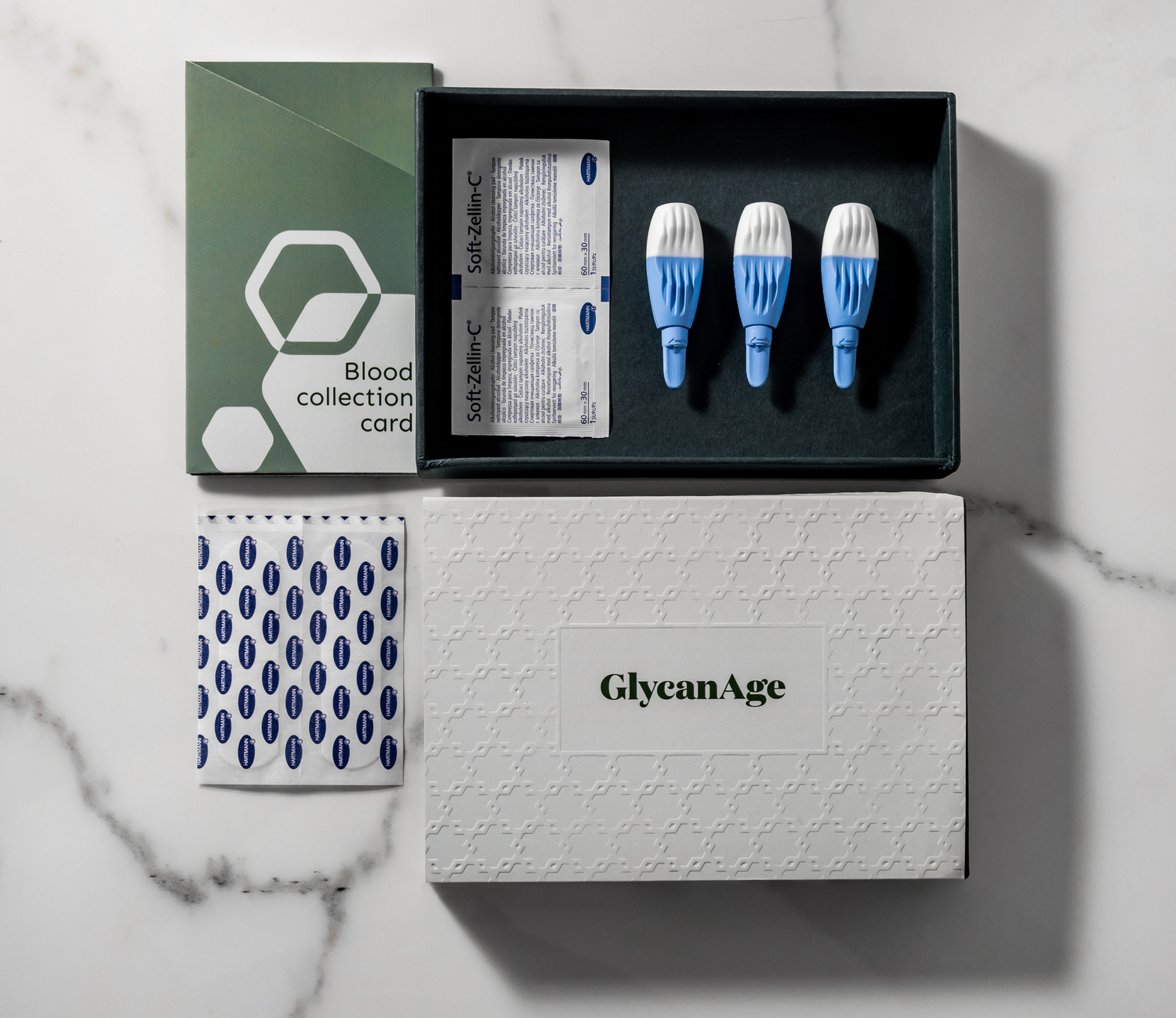
A GlycanAge test is an easy way to discover your true biological age (the age of your cells and tissues) in the comfort and privacy of your home and see how it compares to your chronological age (the number of years you’ve been alive).
This information provides vital clues into the quality of your current lifestyle and areas where improvement is needed to increase health and vitality and ultimately reverse your biological age.
The process is simple: all it takes is a quick finger-prick blood sample mailed to our accredited lab for analysis. Once our scientists have conducted a rigorous analysis of your sample, they will create a detailed report containing your results and personalised feedback.
There are various price points and packages for every customer, no matter your budget or where you are on your wellness journey. Each purchase comes with a complimentary 1-1 session with our team of experts to help you understand your results and take proactive measures to delay ageing.
Take advantage of our affordable price plans and additional discounts and order your GlycanAge biological age test today.

Start or continue your GlycanAge journey
Don’t be afraid to reach out to us and ask questions, provide commentary or suggest topics.
Other articles you may like:
Learn how to improve your gut microbiome for better health. From diet to lifestyle changes, this guide offers science-backed tips for good gut health.
Explore the 12 hallmarks of ageing and stay updated with the latest breakthroughs in longevity research. Start your journey towards a healthier, longer life.